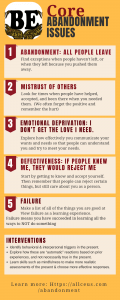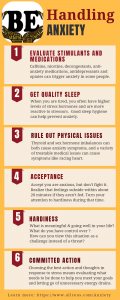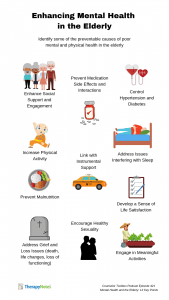Infographic Vault
The following infographics are based on episodes of Counselor Toolbox Podcast Feel free to download or share these with your colleagues. All Counselor Toolbox Podcast Episodes are also available in video format on our YouTube channel and the corresponding CEU courses for LPCs, LCSWs, LMFTs, RPs, CRCs, CADCs, LADCs (and more…) can be found on this easy to use crosswalk.
Any of these can be personalized and printed as posters or rack cards, email support@allceus.com for pricing.
Moral Injury Z Code
Clinical Practice Continuing Education for LMFT, LCSW, LPC, LMHC. NAADAC and State Accredited education provider. Dawn-Elise Snipes PhD, LPC, LMHC NPI: 1699003533 ✍ 💻 Earn Live and On-Demand CEUs in social work, counseling, family therapy, case management, psychology...
POTS and Autonomic Dysregulation: Clinical Practice Guideline
Beyond the Fog: A Clinicains Guide to POTS and Autonomic Dysregulation Clinical Practice Continuing Education for LMFT, LCSW, LPC, LMHC. NAADAC and State Accredited education provider. Dawn-Elise Snipes PhD, LPC, LMHC NPI: 1699003533 ✍ 💻 Earn Live and On-Demand CEUs...
The Neurobiology of Insulin Resistance: Impact on Mood & Cognition
Neurobiology of Insulin Resistance Impact on Mood & Cognition Clinical Practice Continuing Education for LMFT, LCSW, LPC, LMHC. NAADAC and State Accredited education provider. Dawn-Elise Snipes PhD, LPC, LMHC NPI: 1699003533 Explore how stress of all types increases...
Revealing the Nutrition–Mood Connection in Seniors
Revealing the Nutrition–Mood Connection in Seniors Unique Nutritional Needs of Older Adults. It is essential for clinicians to Understand changes in taste, swallowing, oral health problems and changes in nutrient absorption that result from aging and how they impact...
5 Intimacy Types That Deepen Connection and Strengthen Relationships
Doc Snipes discusses 5 Intimacy Types That Deepen Connection and Strengthen Relationships. It isn't all about sex or touch. It is about feeling safe enough to be physically, emotionally and/or mentally vulnerable around someone. ✍ 💻 Earn Live and On-Demand CEUs...
Hormones & Mental Health: What Every Counselor Should Know (CEU)
Hormones & Mental Health: What Every Counselor Should Know (CEU) ✍ 💻 Earn Live and On-Demand CEUs in social work, counseling, family therapy, case management, psychology and more @AllCEUs.com $59 unlimited access. 👍👍 Like and click the BELL to get notified when new...
Thyroid Trouble: The Hidden Root of Low Energy, Mood & Brain Fog
✍ 💻 Earn Live and On-Demand CEUs in social work, counseling, family therapy, case management, psychology and more @AllCEUs.com $59 unlimited access. 👍👍 Like and click the BELL to get notified when new videos are uploaded. If this video has helped you, please donate to...
Healing the Nervous System in Addiction & PAWS (Post Acute Withdrawal)
Healing the Nervous System in Addiciton & PAWS (Post Acute Withdrawal) ✍ 💻 Earn Live and On-Demand CEUs in social work, counseling, family therapy, case management, psychology and more @AllCEUs.com $59 unlimited access. 👍👍 Like and click the BELL to get notified when...
Calmer Environments for Seniors: Sensory & Communication Tips
Managing Sensory Issues in Older Adults to Create Environments that Restore Calm: Essential Tools to Reduce Sensory Overload in Seniors 🤖 Use https://DocSnipes.com/Clones to get answers to mental health questions and inline citations to the relevant points in YouTube...
The Surprising Connection Between Hearing Loss and Cognitive Function
The Surprising Connection Between Hearing Loss and Cognitive Decline, Cognitive function and Dementia #aginggracefully #agingwell #dementia #cognitivefunction #functionalmedicine 🤖 Use https://DocSnipes.com/Clones to get answers to mental health questions and inline...




